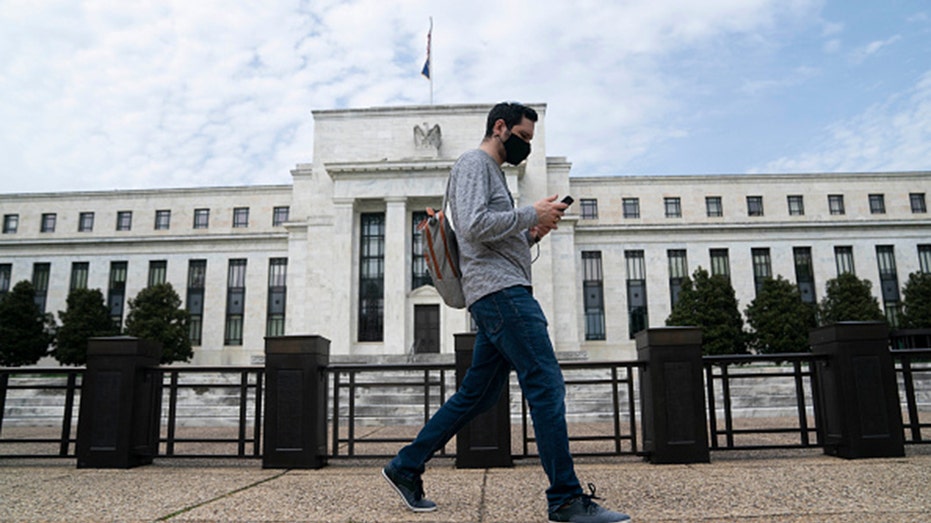Morgan Stanley warns stock market rally will likely be short lived
S&P 500 could fall 18% from current levels, Morgan Stanley warns
How is a recession priced in to markets?
UBS Managing Director and Senior Portfolio Manager Jason Katz, weighs in on what he believes is behind the 'last leg of volatility.'
The stock market briefly bounced back last week from a widespread selloff that began earlier this month, but equities are likely to see further losses as sky-high inflation and an increasingly hawkish Federal Reserve continue to pose risks to the economic outlook.
That's according to Morgan Stanley analysts, who said in a note that the relief rally in the stock market has limited scope to go much further until the risks begin to fade.
INFLATION SOARS 8.3% IN APRIL, HOVERING NEAR 40-YEAR HIGH
"Last week’s strength will prove to be another bear market rally in the end," the strategists, led by Michael Wilson, wrote in the note. "The key fundamental call we are focused on now is slowing growth, and our view that earnings estimates are too high."
Wilson sees the S&P 500 climbing to a maximum of 4,300 points in the current rally – up 10% from one week ago, when the index closed just above a bear-market threshold, and up 3.4% from Friday's close.

A sign for Wall Street is carved in the side of a building, Thursday, Nov. 5, 2020, in New York. U.S. futures and world shares have surged as investors await the outcome of the U.S. presidential election and embrace the upside of more gridlock in Was (AP Photo/Mark Lennihan / AP Newsroom)
But that will be short-lived: Wilson expects the S&P will trade close to 3,400 by the end of the second-quarter earnings season in mid-August. That would mark an 18% drop from current levels and a 29% decline from the beginning of the year.
"The primary rationale ascribed to this particular rally beyond just an oversold bounce is that the Fed may be contemplating a pause in September," Wilson wrote. But he warned that "inflation remains too high for the Fed’s liking and so whatever pivot investors might be hoping for will be too immaterial to change the downtrend in equity prices."
There are growing fears on Wall Street that the Fed may inadvertently trigger a recession with its war on inflation, which climbed by 8.3% in April, near a 40-year high. Other firms forecasting a downturn in the next two years include Bank of America, Fannie Mae and Deutsche Bank. Subramanian put the odds of a recession around 40%.
Economic growth in the U.S. is already slowing. The Bureau of Labor Statistics reported earlier this month that gross domestic product unexpectedly shrank in the first quarter of the year, marking the worst performance since the spring of 2020, when the economy was still deep in the throes of the COVID-induced recession.

A man wearing a mask walks past the U.S. Federal Reserve building in Washington D.C., on April 29, 2020. ((Xinhua/Liu Jie via Getty Images) / Getty Images)
Fed policymakers already raised the benchmark interest rate by 50 basis points earlier this month for the first time in two decades and have signaled that more, similarly sized rate hikes are on the table at coming meetings as they rush to catch up with inflation. Chairman Jerome Powell recently pledged that officials will "keep pushing" until inflation falls closer to the Fed's 2% target.
Still, he has acknowledged there could be some "pain associated" with reducing inflation and curbing demand but pushed back against the notion of an impending recession, identifying the labor market and strong consumer spending as bright spots in the economy. Powell has, however, warned that a soft landing is not assured.
CLICK HERE TO READ MORE ON FOX BUSINESS
"It's going to be a challenging task, and it's been made more challenging in the last couple of months because of global events," Powell said last week during a Wall Street Journal live event, referring to the Ukraine war and COVID lockdowns in China.
But he added that "there are a number of plausible paths to having a soft or soft-ish landing. Our job isn't to handicap the odds, it's to try to achieve that."





















